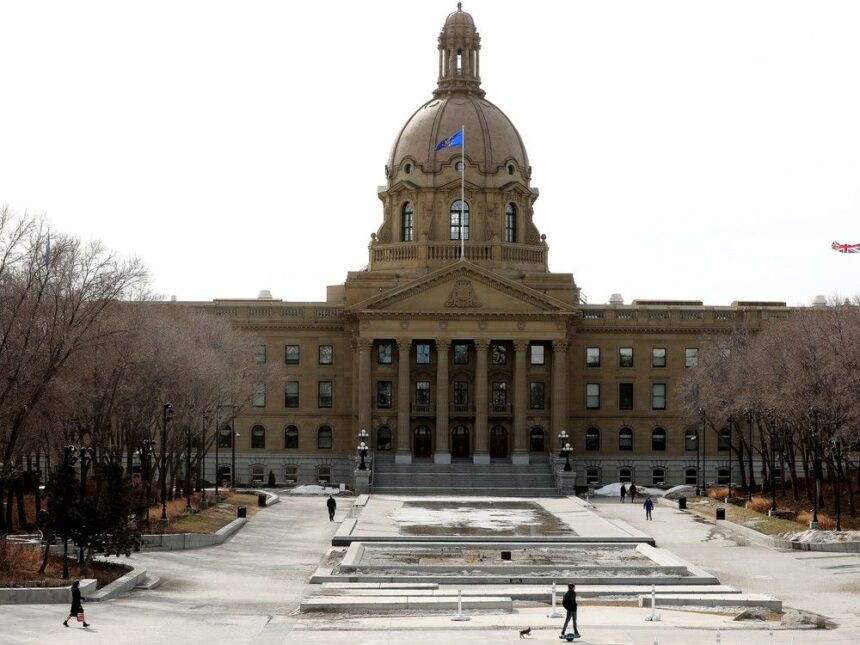As I walked through the crisp autumn air outside the River Cree Resort and Casino yesterday, the tension was palpable. Inside, Alberta’s Indigenous leaders had gathered to respond to Premier Danielle Smith’s recent controversial comments suggesting Alberta might consider separation if federal policies continue to “attack” the province’s economy.
The Assembly of First Nations regional gathering became an unexpected focal point for political discourse when several chiefs stepped forward to address what many view as dangerous rhetoric coming from the province’s highest office.
“When the premier of Alberta talks about separation, she needs to understand that Indigenous people have treaties with the Crown,” Grand Chief Arthur Noskey of Treaty 8 First Nations told me during a brief interview. His eyes reflected both concern and determination as he spoke.
The premier’s statements, made during a speech at a United Conservative Party fundraiser in Calgary last week, suggested Alberta might need to “reconsider its place in confederation” if federal climate policies continue. These remarks struck a nerve with many Indigenous leaders who view their relationship with the federal government as foundational.
Chief Tony Alexis of Alexis Nakota Sioux Nation didn’t mince words when addressing the gathering. “We have a relationship with the Crown that precedes Alberta becoming a province,” he explained, gesturing to the treaties displayed prominently near the podium. “Our treaties aren’t with Alberta – they’re with Canada.”
Walking among the attendees after the formal speeches, I could sense the frustration. For many Indigenous communities, talk of separation creates uncertainty about treaties that form the legal backbone of their rights and relationship with Canada.
Grand Chief Noskey further clarified that if Alberta were to separate, First Nations wouldn’t automatically follow. “We would stay with Canada or possibly form our own nation,” he said, a statement that drew nods of agreement from those standing nearby.
Smith’s office responded later in the day, providing a statement that attempted to clarify her position. “Premier Smith remains committed to working with Indigenous communities,” read the statement, which emphasized “a strong Alberta within a strong Canada.”
However, many Indigenous leaders I spoke with expressed skepticism about this reassurance. Chief Allan Adam of the Athabasca Chipewyan First Nation was particularly direct. “These comments show a fundamental misunderstanding of our place in this country,” he said while we discussed the implications after the main session.
Treaty relationships between First Nations and the Crown date back to the 18th century, with Treaty 6 covering central Alberta and Saskatchewan signed in 1876, Treaties 7 and 8 following in the decades after. These agreements existed well before Alberta became a province in 1905.
The premier’s comments also raised concerns beyond just treaty relationships. Several chiefs mentioned the ongoing reconciliation process and how separation rhetoric undermines progress made in recent years.
“We’re working to heal relationships, not create new divisions,” explained Elder Mary Cardinal, who has been involved in reconciliation efforts for over three decades. As we walked through the display of historical treaty documents, she pointed out sections that specifically reference the perpetual nature of these agreements.
Smith has faced criticism before for comments about Indigenous issues. Last year, she apologized after suggesting Indigenous people had been “paid” to damage Canadian flags during Canada Day events, comments that many found deeply offensive.
Political analysts suggest this latest controversy could further complicate Alberta’s relationship with Indigenous communities at a time when cooperation on resource development and environmental stewardship is increasingly important.
“The premier needs to consider the full implications of such statements,” said Dr. Gabrielle Lindstrom, Indigenous Studies professor at Mount Royal University, when I reached her by phone for comment. “Separation talk isn’t just political rhetoric – it has real consequences for treaty relationships that are constitutionally protected.”
As the gathering concluded, I watched chiefs from various nations speaking in small groups, discussing strategy and next steps.







